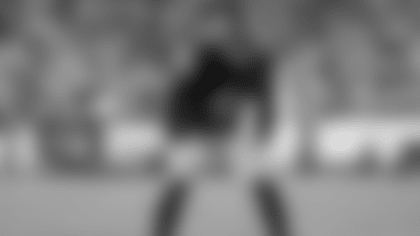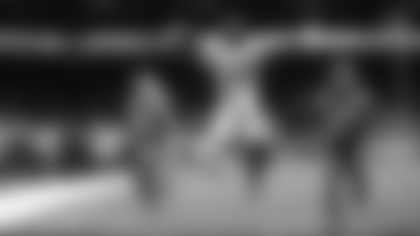For the second consecutive year, UPMC Sports Medicine will present a free concussion education program geared toward coaches, athletic trainers, and athletic directors in middle schools and high schools. Sponsored by the Pittsburgh Steelers and set for Thursday, April 6 at Heinz Field, the Concussion Symposium is designed to educate area coaches and administrators about the signs and symptoms of the injury, to outline treatment options, and to explain how UPMC is helping patients recover and return to play.
In 2016, the first time the Steelers sponsored and hosted this Concussion Symposium, representatives of 56 schools attended, and it was geared mainly toward football coaches, athletic trainers, and athletic directors. This year, attendance is expected to double, with 69 school districts committing to a Symposium that has been expanded to include all sports.
"What's new is we continue to refine our treatments, we continue to refine our rehab protocols, we continue to understand the complexities of this injury and that if you match the right treatment to the right problem, then you're going to get someone better from this," said Dr. Micky Collins, the Executive and Clinical Director of UPMC Sports Medicine Concussion Program. "And frankly, we're getting better and better and better at getting kids healthy and back to play."
In addition to representatives from the 69 area school districts, college athletic trainers from Pitt, Point Park, Washington & Jefferson, California University, LaRoche, and some others will be attending. And because UPMC has made this Symposium eligible for continuing education credits for athletic trainers and physical therapy personnel, many of them will attend as well.
The Steelers have invited their Youth Football partners, and UPMC extended invitations to its Youth Hockey and Youth Baseball partners. Last year, Coach Mike Tomlin was the featured speaker, and this year it will be Dale Earnhardt Jr., who will provide a patient's perspective on concussions and the treatment for his injury that was provided by UPMC.
"We've been beating this drum for a while, that this is a treatable injury, and we just continually improve our outcomes and our abilities to attack this injury in the right way and get kids back to play safely," said Collins. "We have to fight a lot of misinformation out there. There's just a lot of misinformation. There's a lot of information being shared that isn't necessarily what we see in our research. It's a continual process to get the correct information out there to parents."
Getting that information to parents is important, but getting it to those on the front lines – the coaches and athletic trainers – is critical in helping them recognize the symptoms of a concussion and then having them know what is the proper course of action when they see those symptoms in a young athlete.
"It's not very often that you get to talk to the gatekeepers to this injury, and the fact we're talking to athletic trainers and coaches, they're a very important audience," said Collins. "I'm pretty confident we'll be successful. Our whole treatment team will be talking, and it's going to provide the right information to the correct people. We're going to show people that there are different types of concussions and that there are different treatments for these different types of concussions, and when you match the right treatment to the right problem we have good outcomes. That's what will be shared at this Symposium."
Collins said he isn't aware of any similar Symposiums being conducted anywhere else in the country, and he added that the fact the Steelers are sponsoring the one here helps UPMC get the right people in the room in order to make it as effective as is possible.
"It's through events like this, it's through publications, it's through academic lectures, it's through talking to pediatricians and neurosurgeons and neurologists," said Collins about the path the UPMC Sports Medicine Concussion Program is trying to take. "It's the academic process. A true paradigm shift takes a long time to happen, and that's what we're in the middle of with this injury. We've gone from rest to more active treatments, and ideas in medicine take a long time to change, and it takes a long time to research, and it takes a long time to prove. That's what we're in the middle of right now, and the tide is turning, I think. We're getting the right information out there. It takes a lot of work, but that work is being done."














